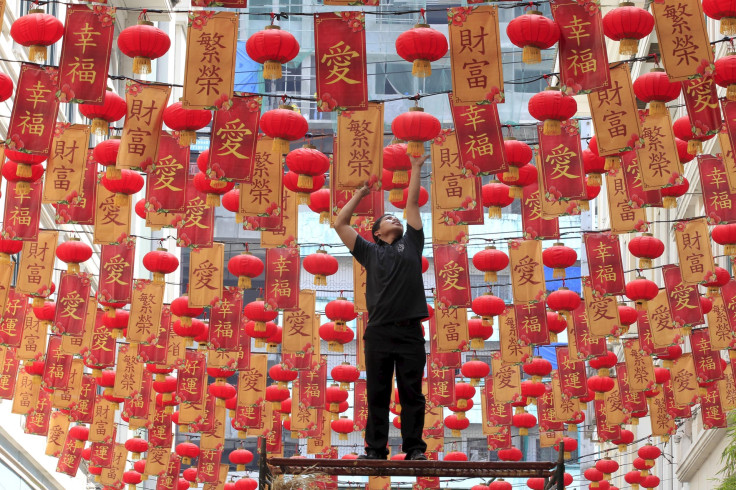How To Celebrate Chinese New Year 2016: When Is Lunar New Year And How Long Does It Last?

Chinese New Year, also known as the Spring Festival in China, is just around the corner. That means people the world over are preparing for the Year of the Monkey and getting ready to celebrate with their families.
The holiday is set by the traditional Chinese lunisolar calendar, which means the date changes every year. This year, it begins on Monday. Celebrations typically start on the night before and last for 15 days, according to ChineseNewYearsInfo.com. Many people who celebrate the holiday will take off work for seven days, starting Sunday and running through Feb. 13.
Before the festivities begin, Chinese families will spend days cleaning their homes and putting up traditional New Year decorations, including lanterns, paint, paper-cutting and door ornaments.
In Chinese tradition, the New Year was a time to honor one’s household as well as gods and ancestors. It was considered the most important festival on the calendar, and almost all business stopped during the celebration.
Families would clean their homes to thank the gods, who were thought to come down to earth to make inspections, History.com reported. People also made ritual sacrifices of food and paper icons to honor the gods, and set off firecrackers to frighten evil spirits. Many of the traditions were meant to bring good luck.
Today, Chinese New Year is a chance for families to spend time together and share meals with each other. Wherever they live during the rest of the year, people go home to celebrate the festival with their families. Large extended families often gather to eat during the holiday, and these events can include gift exchanges.
Many Chinese families also spend the holiday watching the televised Spring Festival Gala, an annual variety show that features a mix of contemporary and traditional singers, as well as dancers and magicians, according to History.com.
There are also parades and celebrations in many cities outside of China, including London and New York. Some major traditions include:
New Year’s Eve Dinner — Fish is usually served during this meal, and dumplings are often served as well. These dishes signify prosperity, which is an important theme of the holiday.
Fireworks — Fireworks are thought to drive evil spirits away. Some believe that the person who launches the first firework of the new year will have good luck.
Shou Sui — This phrase means “after the New Year’s Eve dinner,” according to the Chinese New Years Info website. Legends originally told of a beast named “Year” that would harm people, animals and property, so they worked to scare it away with fireworks.
Red Packets — These red envelopes are one of the most significant aspects of the Chinese New Year. They contain money, which can range from one to a few thousand Chinese yuan. Married adults often give these to children and the elderly, because the packets are thought to help people live a healthy life.
New Year Markets — Temporary markets are set up throughout the holiday and offer goods such as clothing, fireworks, decorations and art.
Decorations — After the traditional cleaning, people decorate their homes, mostly with red items, for the holiday.
© Copyright IBTimes 2025. All rights reserved.






















